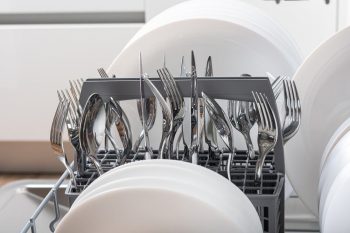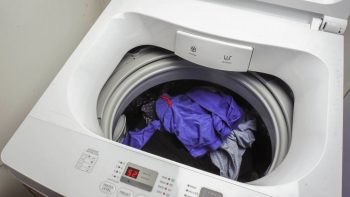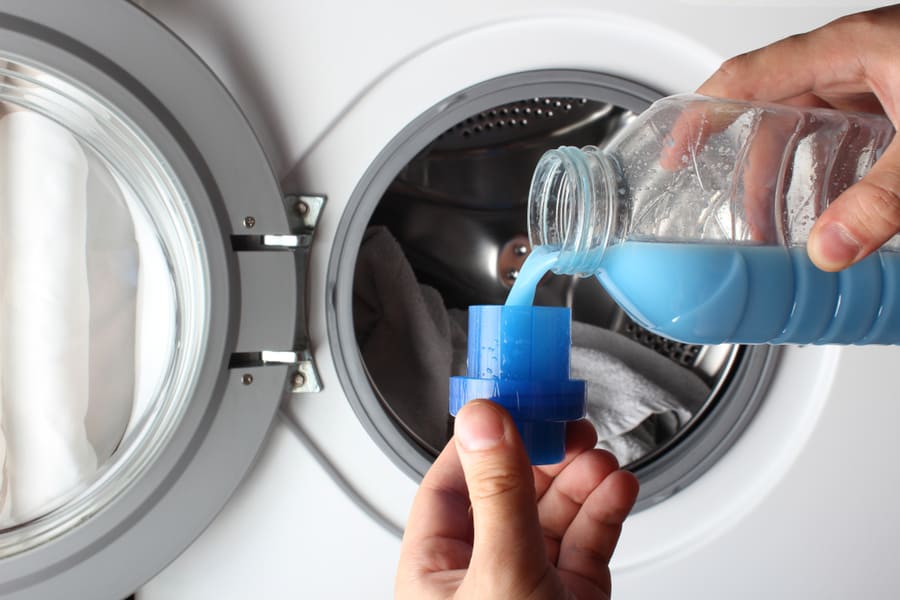
Have you recently heard your friend tell you how too much fabric softener has caused her washing machine to choke? Do you want to know if this is real or just stories?
Hold on, because this article will provide you with all information regarding the despised relationship between your washing machine and fabric softener.
A fabric softener is a lubricating agent that makes your laundry soft and fluffy. It can offer multiple benefits to your clothes by making them soft, wrinkle-free, and fresh smelling. However, there is a downfall to all this good.
Whether in the form of liquid or powder, a fabric softener can be detrimental to the health of your washing machine. It might make your fabric beautiful and soft to the touch but may cause a silent choking death of your expensive washing machine.
If you are confused about deciding whether to use fabric softener with care or cut its use completely, this article can greatly help you.
A fabric softener can prove bad for your washing machine. It can:
- Reduce the efficiency of the washing machines.
- Produce foul odors in the wash drum.
- Grow mold in the drainage system.
- Reduce the lifespan.
- Clog pipes of the washing machine.
- Create fire risks.
Besides that, it can also be bad for your health and cause allergies. You can replace the fabric softener with vinegar or baking powder to see the same results for your clothes.
This article will explain how fabric softeners can damage your washing machine. You will also find the effects and preventive measures when using a fabric softener in your washing machine.
6 Ways Fabric Softeners Damage Washing Machines
Fabric softeners are a good option to freshen up your clothes. It softens the cloth fiber and reduces clinging due to static electricity.
Thus, it makes your clothes appear nice and smooth. It also reduces the wrinkling of clothes and adds a nice scent to them.
No matter how many benefits a fabric softener may add to your clothes, it can take a big toll on the health of your washing machine. It can cause clogging of drains leading to mold growth in your washing machine.
Moreover, it can cause water damage to the inner components, causing the unit’s breakdown in the long term.
Below, we will discuss 6 of the commonest damages that excessive use of fabric softener can cause to your washing machine. Let’s discuss them one by one:
1. Reduces Efficiency
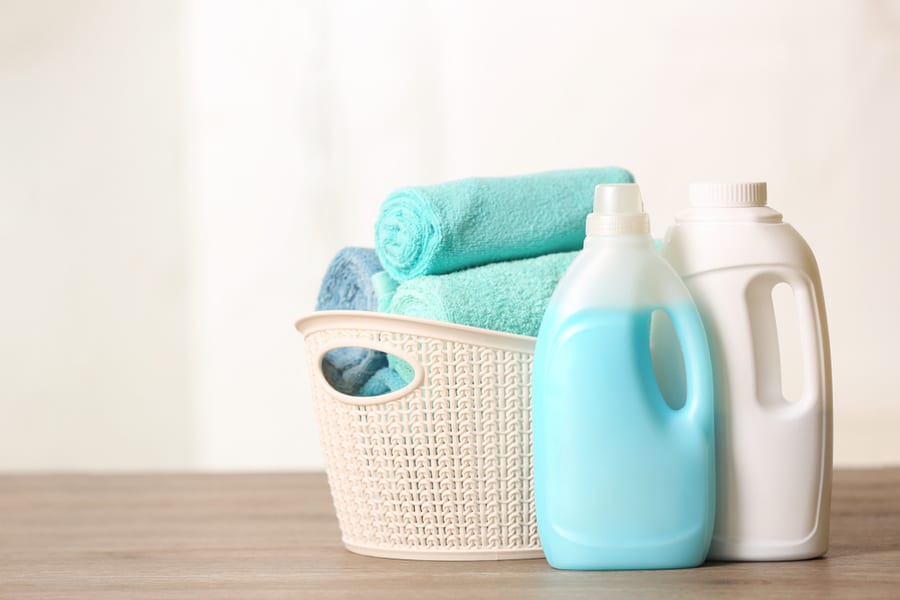
A fabric softener can reduce the efficiency of your washing machine over time. Since it is a chemical formula, it can develop residual substances when reacting with water and cloth fiber.
These residues can coat the drum and drainage pipes of the machine.
The residues can also cover the fabric surface, making it difficult for the detergent to point out the stains in the fibers and remove them effectively.
You might not see an immediate effect on the efficiency of your washing machine due to the use of fabric softener. The problem can start as a minor one and can prevail to become huge as time passes. It can eventually weaken the machine to the point that it will stop working anymore.
2. Produces Foul Odor

You might often experience a foul odor coming from the wash drum of your washing machine. Most of the time, this smell also seeps into the clothes being washed and makes them stinky.
This smell comes from the rotting fabric softener accumulated in the base of the wash drum. The residues of the fabric softener can stick to the wash drum and release a foul smell as soon as they catch moisture.
3. Grows Mold
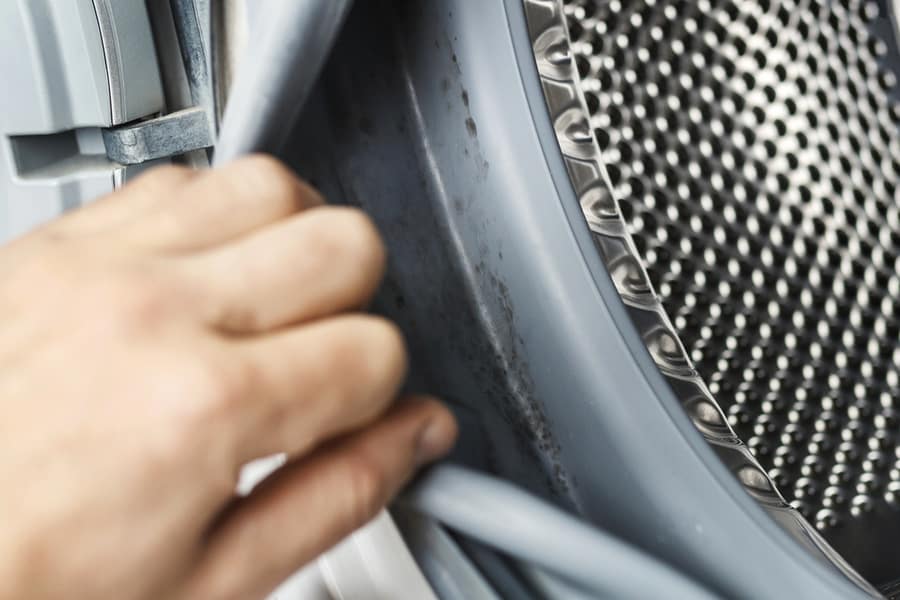
Washing machines get loaded with water again and again for washing clothes. The water is not always completely drained, and a good amount of moisture stays in the wash drum.
Coupled with the action of the fabric softener and its residues, your washing machine can create a perfect breeding ground for mold and bacterial growth.
The moisture, the warmth, and the residual fabric softener can help the bacteria thrive and create nasty-looking patches in the bottom of the washing machine.
Besides a dirty look, this moldy environment can also be very dangerous to your health. It can provoke several infections and cause discomfort in breathing as well.
4. Reduces Lifespan
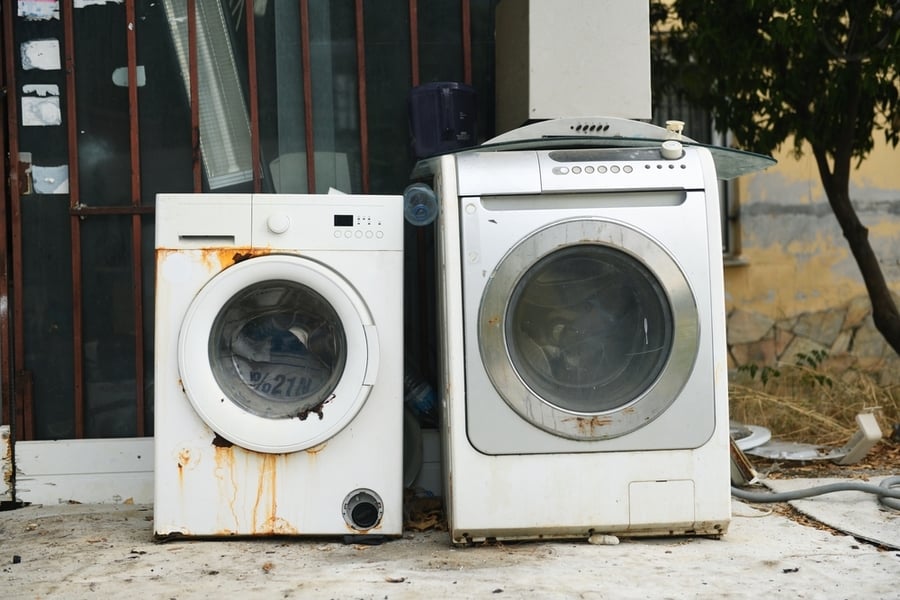
Your washing machine needs regular upkeep to work at its best. A slight mistake can take a toll on its health and degrade its efficiency.
Due to the great use of fabric softeners, the residual chemicals in the solution can accumulate over the bottom as well as the drainage system of the washing machine.
Besides that, it can also accumulate over the critical parts of the machine, such as its seals, shafts, and pumps. This can cause serious damage to your washing machine.
All of this can combine to decrease the efficiency and hence reduce the predicted lifespan of the washing machine. The machine may eventually cease to work before time.
5. Clogs Pipes
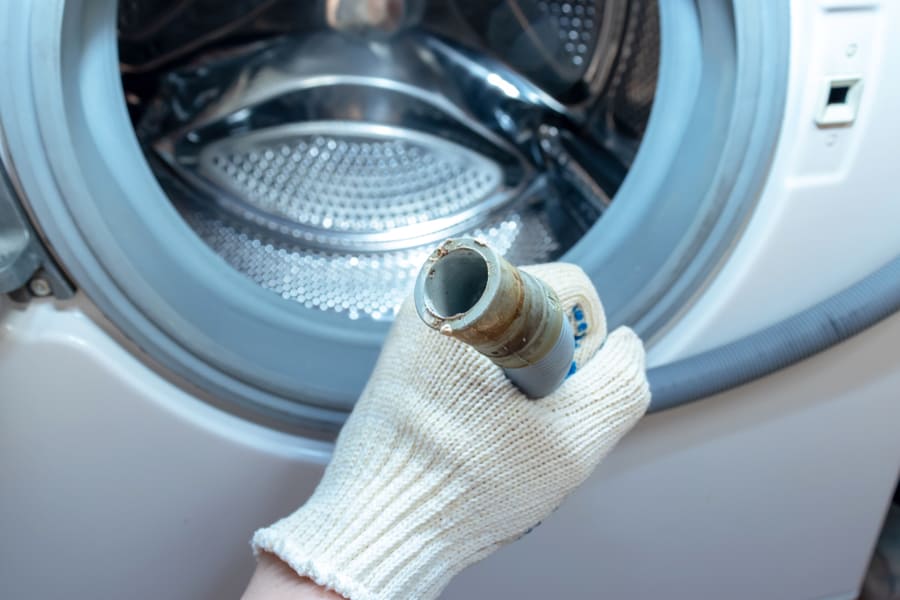
Building up the layers of residues slowly in the drainage system and pipes, the fabric softener can eventually lead to permanent clogging of the narrow pipes.
As the pipes get clogged, water can no more drain out easily and can cause other major damage to your washing unit. A few major problems can be water leakage, mold growth, bacterial colonization, water damage to machine parts, and even electrocution danger.
6. Creates Fire Risks
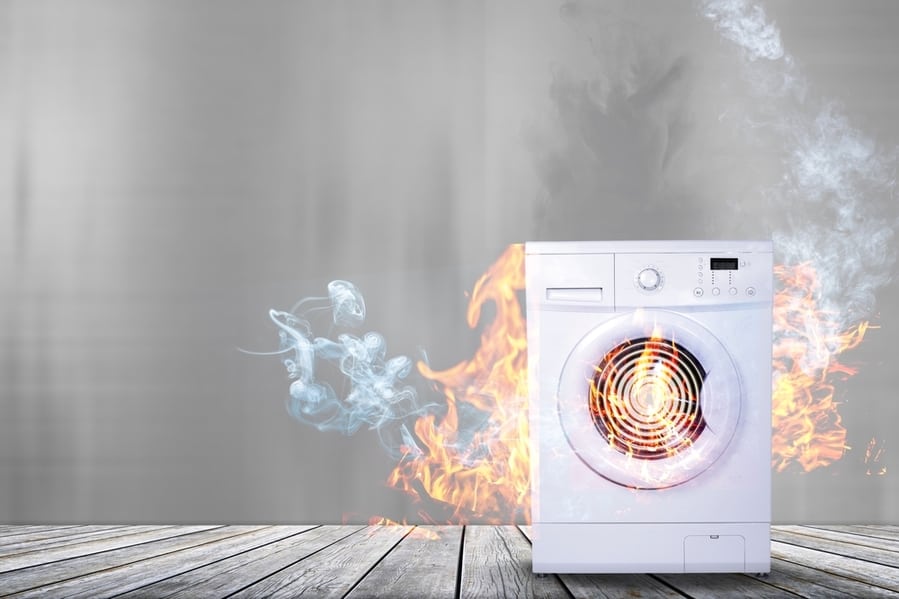
Since fabric softeners are made of flammable solutions, they can create a major fire risk.
If your washing machine contains a heating element, the residues of the fabric softener can accumulate over it and can catch fire at any time.
Knowing about the highly volatile nature of your fabric softener, you should take proper preventive measurements whenever using it.
The major prevention is to use it in a very small amount and wash your machine with abundant water after the wash cycle.
Is Fabric Softener Bad for You?
When using a fabric softener, you should not forget the reality of its nature. A fabric softener is made up of sharp chemical substances. Once you apply it to your clothes in the washing machine, it will leave its trace all over.
There will be leftover residues of the fabric softener on the cloth and in your washing machine’s drum and drainage system.
While the residues are washed off from the cloth, they can keep accumulating layer over layer in the drainage pipes of the washing machine.
Besides that, fabric softeners may not be good for your skin and can cause infections. To explain this further, we have given these 5 reasons why you should stop using fabric softeners:
1. Leaves Residues
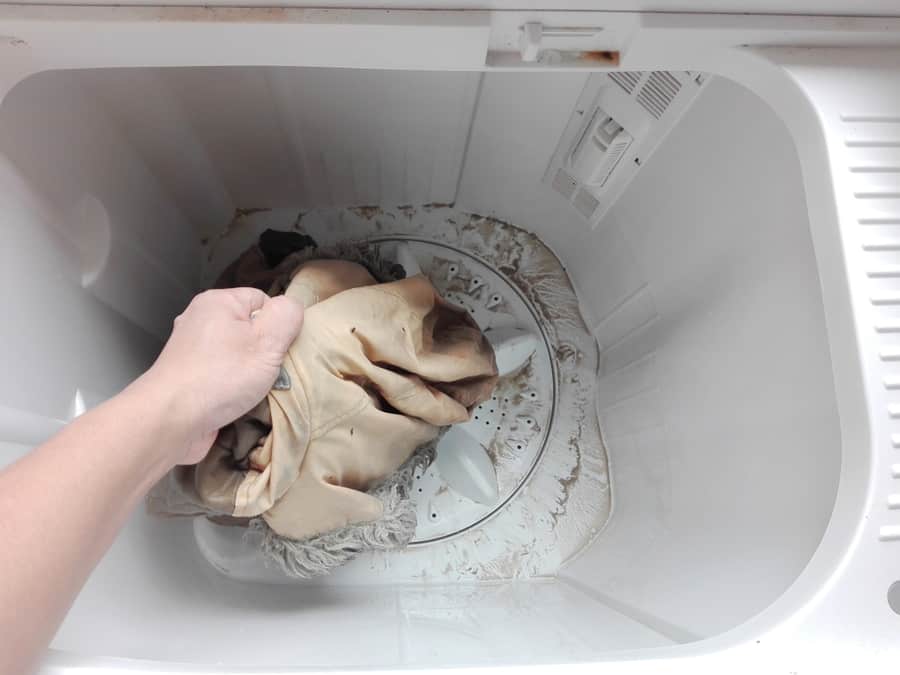
This time you wash your clothes with a fabric softener. Do check out the change in their texture and feel afterward.
Has the fabric softened up and is thicker than before? If yes, then you can easily assess how the application of fabric softener can coat the surface of your clothes and leave its residues over them.
With the use of fabric softener, your clothes are fragrant and wrinkle-free. However, the fabric will attract more dirt and develop lint over time.
2. Damages Washing Machine
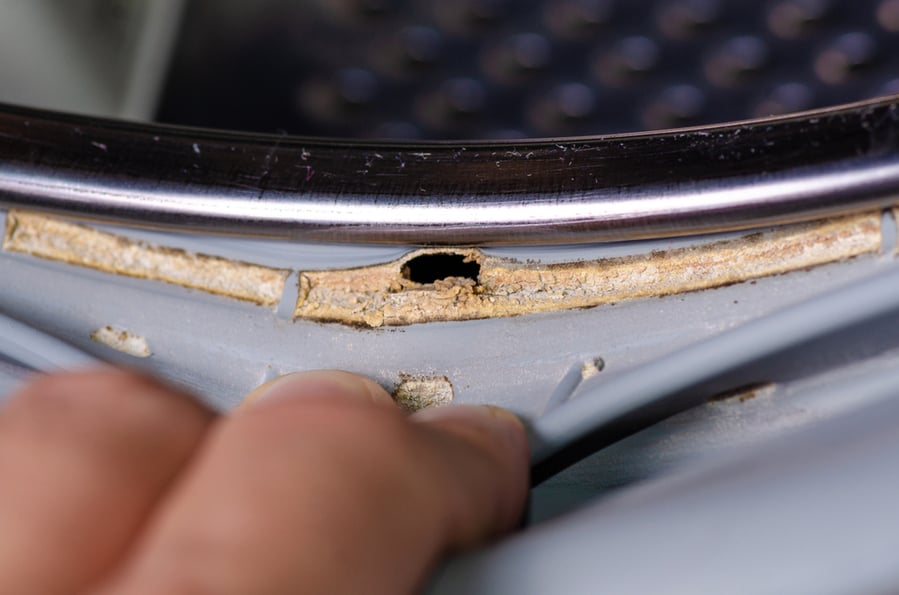
The residues from the fabric softener can layer up in the bottom as well as the drainage holes of the washing machine. As time passes, the layers can get thicker and thicker due to the continuous accumulation of residues.
This will result in slow and poor draining of the wash liquid in the washing machine. A choked drainage system will keep the water in the washing drum, and the health of the washing machine can deteriorate.
The phenomenon can lead to leakage into the washing machine and eventually fail its working completely.
3. Damages Laundry
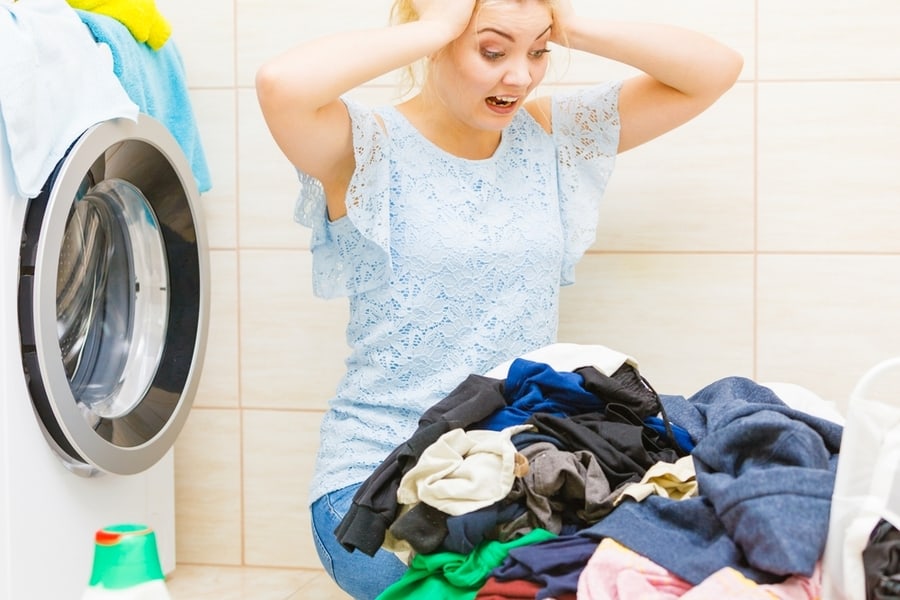
An excessive fabric softener can soften the clothes so soft that it can eventually weaken them. This can cause excessive breakage of the cloth fiber and cause wear and tear.
For towels, a fabric softener can result in poor absorption ability, reducing towels’ ability to dry your body effectively.
Thus, high use of fabric softener can cause serious damage to your laundry clothes, sheets, and towels.
4. Non Biodegradablility
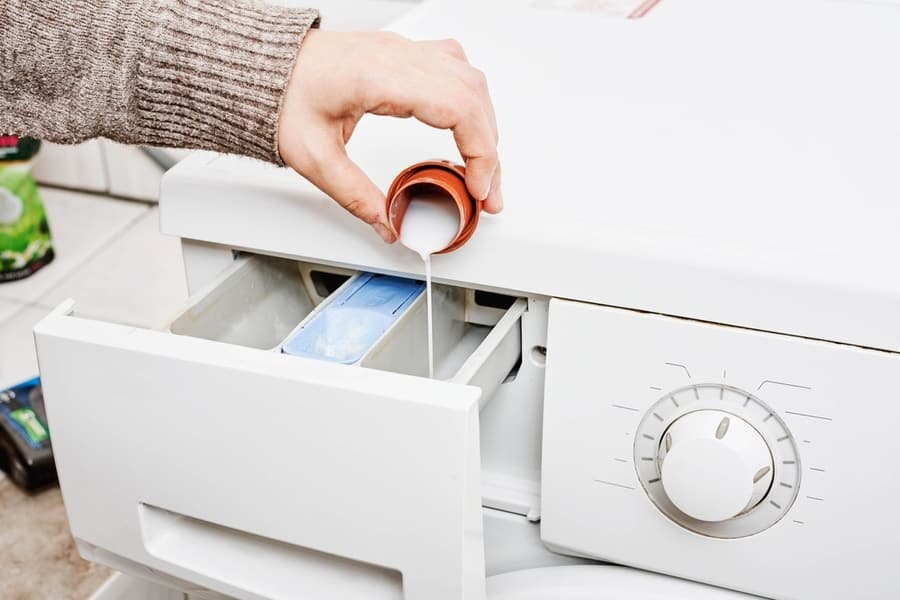
Most of the fabric softeners available in the market are non-biodegradable. This means that they cannot be easily broken down naturally by microorganisms and hence can lead to pollution.
Many fabric softeners are manufactured with the use of synthetic chemicals. These chemicals can go down the drain with the water and stay there for many years.
In this way, it can be a major threat to marine life and all those animals drinking the polluted water.
5. Triggers Allergy

Many people report redness, itching, sores, and swelling after wearing clothes treated with fabric softeners. If you face the same, you might be allergic to the harmful chemicals in fabric softeners.
How To Prevent Damages From Fabric Softener?
For every problem, there is always a solution. So, there are several possible solutions that we have identified to save you from issues arising due to the use of fabric softeners.
To keep the health of your washing machine in view and to escape any accident, you can consider the following solutions:
1. Use Smaller Quantities
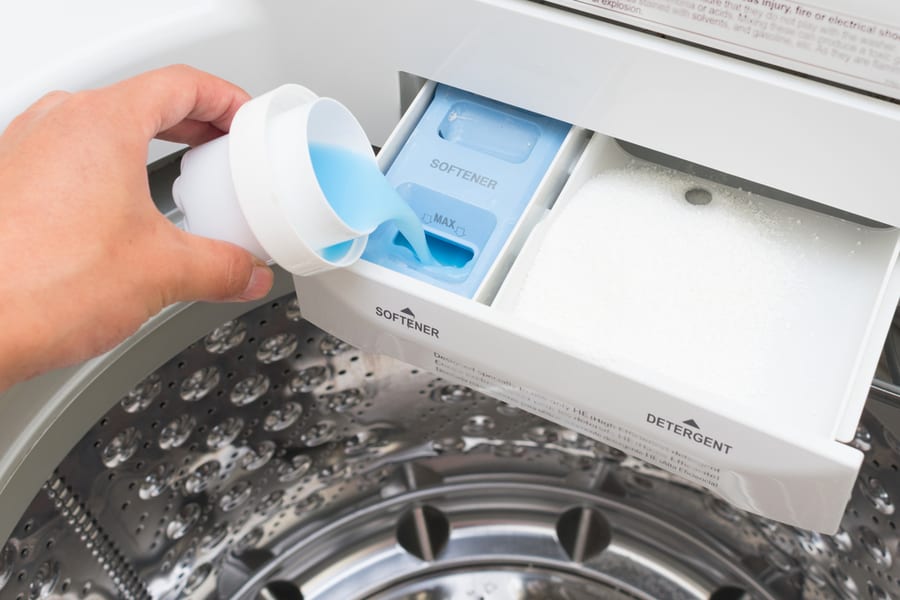
No matter how much harm they pose, fabric softeners can be an excellent way to make your clothes look fresh and wrinkle-free.
If you are reluctant to cut it off from your washing routine completely, you can reduce the amount used in each wash cycle.
Lower fabric softener means fewer residues and slower damage to the washing unit.
2. Avoid Fabric Softeners
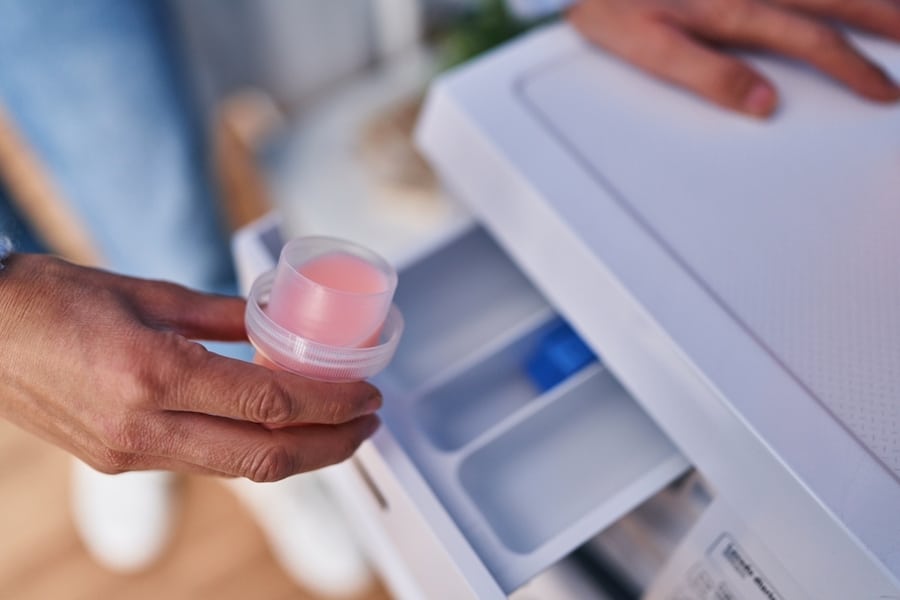
Consider if you are ready to give up on the benefits of a fabric softener for the good of your expensive washing machine.
Completely cutting off the fabric softener and such solutions can be the best solution to any of the problems it is causing. It can protect your washing machine and keep it working for longer.
To replace its use, you can consider several other options. You can use a cup of distilled white vinegar to get a soft, wrinkle-free laundry.
Baking soda can also act as an effective fabric softener and deliver similar results.
3. Clean the Washing Machine Regularly
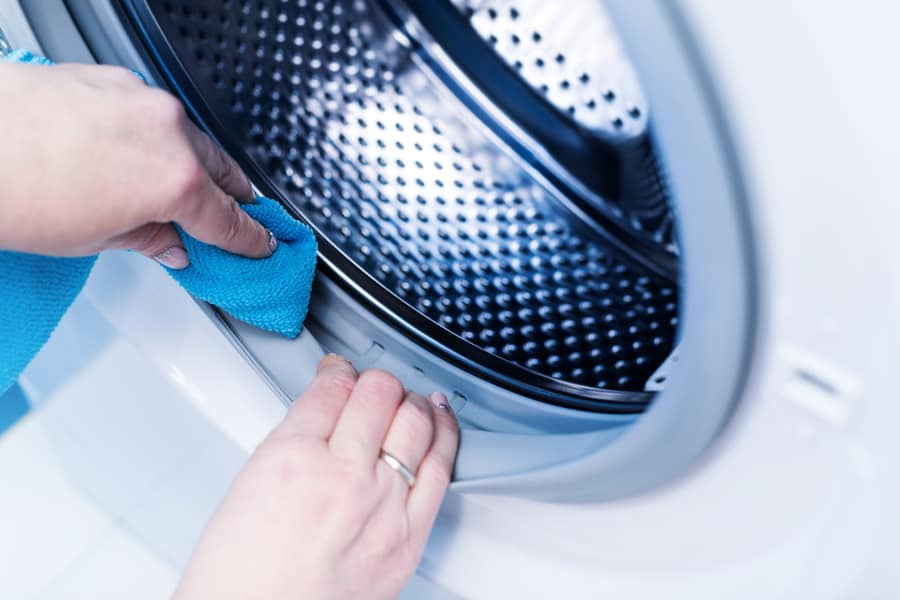
To keep the residues from fabric softener from building over and over, you can flush and clean your washing machine regularly.
Several machine cleaners available in the market can do this work for you. If you want a solution from your home, you can easily find white vinegar in your pantry.
The slightly acidic nature of the vinegar can rub the residues off the washing machine unit. This can reduce the risk of residual build-up and save your machine from its harmful effects.
Ensure you follow the manufacturer’s guide whenever applying any DIY cleaning procedure on your washing machine.
4. Adopt Alternative Solutions
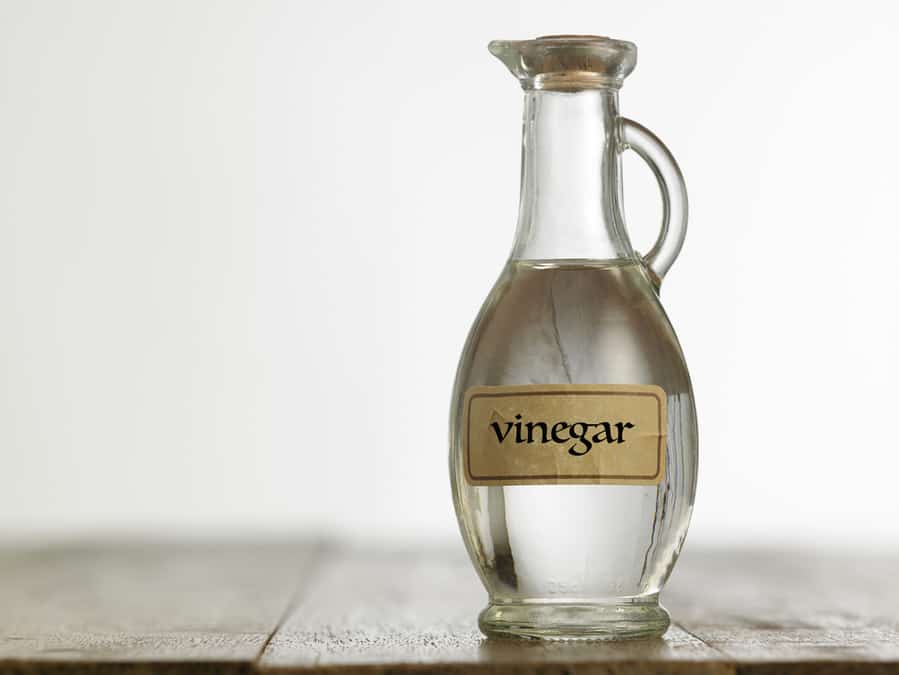
To completely cut off fabric softeners without compromising on the quality of your laundry, you can find many tailor-made solutions to the problem.
Among the best fabric softener alternatives is vinegar solution. You can add vinegar water instead of fabric softener and observe some magical happy results.
Another amazing way to replace fabric softeners is to use baking soda. It cleans your laundry beautifully and offers the additional benefit of a fabric-softening agent.
Vinegar and baking soda replacement can be of great help. Besides being amazing fabric softeners, they can also remove any post-wash bad odors from your laundry.
The biggest benefit will be their work as a fabric softening agent without causing any damage to your washing machine.
Conclusion
A fabric softener may deliver very beautiful results on your clothes. However, it cannot be good for your washing machine.
Prolonged use of fabric softener can reduce the working efficiency of your washing machine. Moreover, due to the accumulation of residues, it can produce foul odors in the washing drum.
It can clog the drainage system in the long run, thus causing mold growth in the washing machine. The volatile nature of fabric softeners can also create fire risks.
Frequently Asked Questions
What Can I Use as a Fabric Softener Alternative?
You can make a fabric softener alternative at home by mixing half a cup of vinegar with a cup of water. Adding a few drops of essential oils will also add fragrance to the mixture.
This solution will deliver excellent results of a fabric softener without damaging your washing machine.
How Can I Make a Washing Machine Cleaner?
You can make a washing machine cleaner at home by mixing 2 cups of vinegar with a quarter cup of baking soda and a quarter cup of water.
Scrubbing this mixture in the washing machine will help remove accumulated residues and unpleasant odors.


